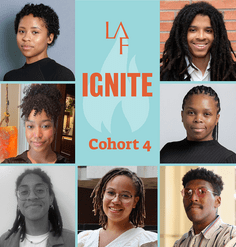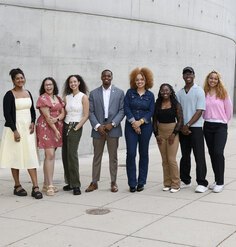Olmsted Scholar Feature: Adaptation and Renewal in the Brazilian Drylands
By Jack Ohly, 2012 National Olmsted Scholar
Between 1999 and 2006, I spent a cumulative two years with a small collective of young farmers in the drylands of Northeastern Brazil. We worked to adapt models of sustainable agriculture to a semi-arid climate. While developing resilient agro-forestry systems to counter 50 years of devastating monoculture and deforestation, we came to realize how the same transformations that had degraded the environment had also eroded the region’s vibrant and deep-rooted culture.
Reaching out to community leaders, farmers, envi- ronmentalists, musicians and school teachers, we embarked on a broad, collaborative effort to revitalize cultural practices, organizing inter-generational workshops, seminars, work parties and an annual festival of traditional music that continues to this day. Raising appreciation of the endangered native scrub forest, demonstrating new rain harvesting systems and facilitating older singers teaching their songs to a new generation all contributed to a positive feedback loop in which we engaged the past to open people to new ideas and possibilities.
I was drawn to landscape architecture for its potential to address these kinds of intersections in a wide spectrum of contexts, integrating social needs, ecology and cultural dynamics into robust systems. At this time of great environmental and cultural loss, landscape architecture is poised to take a leading role in creating new ground, physical and imaginative, on which our natural and cultural heritage will thrive. While most of my student work focused on urban and post-industrial contexts, I see enormous potential in flexible, low-cost strategies that can help rural communities grow through profound and potentially destructive shifts in climate, culture and identity.
As the 2012 National Olmsted Scholar, I will return to Irece, Brazil to develop a set of regionally appropriate models for more ecologically and culturally vibrant public space. These models will be grounded in a survey study of dryland design techniques, regional conditions and history. They will emerge in dialogue with communities and local institutions, addressing the need for versatile social platforms, productive land and healthy, self-sustaining forest. Based on community interest , I hope to develop one or more pilot projects that explore and demonstrate how these potential uses might be layered together in mutually reinforcing ways.
I leave for Bahia tomorrow, August 7, to reconnect with old friends, initiate conversations, document conditions and seek out collaborators. It is my hope that the work will evolve over years, fostering imagination and agency, enriching civic life and contributing to a broader set of strategies for an increasingly culturally-homogenized and water-strained planet.
Jack Ohly just graduated from the University of Pennsylvania 3 year MLA program, where he received the Faculty Medal. He will begin work at Michael Van Valkenburgh’s office in Brooklyn later this month.










